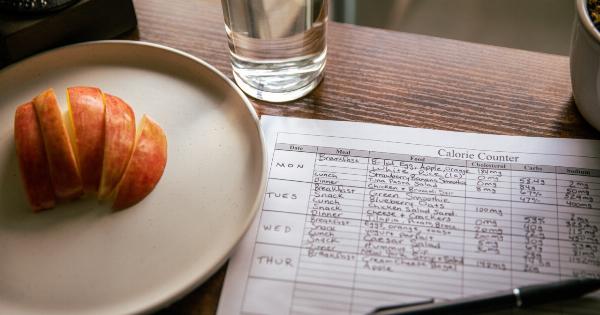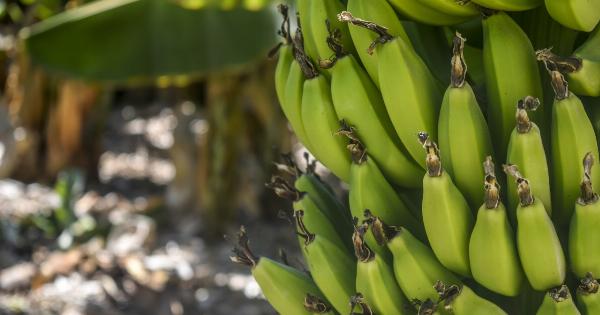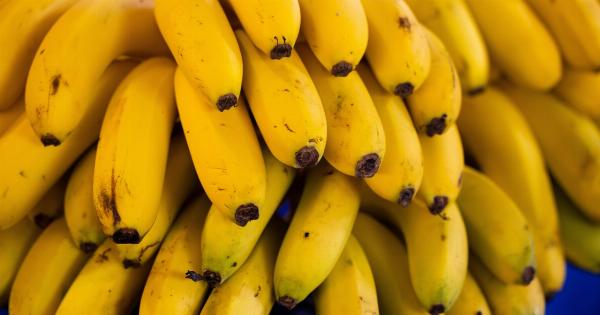Potassium is an essential mineral that plays a significant role in various bodily functions. It helps regulate fluid balance, maintain proper muscle function, and support nerve health.
While potassium is crucial for our well-being, it is important to consume it in appropriate amounts. Too much potassium can be harmful and can lead to a condition called hyperkalemia. In this article, we will explore eight foods that can exceed our daily allowance of potassium and discuss the potential risks associated with excessive intake.
1. Bananas
Bananas are often hailed as an excellent source of potassium. While they provide an array of health benefits, including essential nutrients and dietary fiber, they can overload our potassium intake.
A medium-sized banana contains approximately 422mg of potassium, which accounts for about 9% of the daily recommended intake.
2. Avocados
Avocados are not only delicious but also packed with nutrients. However, these creamy fruits are also high in potassium. A typical avocado contains around 975mg of potassium, contributing to nearly 21% of our daily recommended intake.
While avocados offer numerous health benefits, excessive consumption can quickly add up to our potassium levels.
3. White Beans
White beans, including cannellini beans and navy beans, are rich in potassium. Just one cup of cooked white beans can provide as much as 1004mg of potassium, surpassing approximately 21% of the daily recommended intake.
These versatile legumes are beneficial when consumed in moderation, but excessive consumption can lead to an overload of potassium.
4. Potatoes (with Skin)
Potatoes are a staple food enjoyed in various forms worldwide. They are a good source of vitamins and minerals, including potassium. However, potatoes with their skin intact have a higher potassium content.
A medium-sized baked potato with skin can contain around 941mg of potassium, accounting for 20% of the daily recommended intake.
5. Spinach
Spinach is a nutrient-dense leafy green vegetable that offers a wide range of health benefits. It is rich in vitamins, minerals, and antioxidants. However, spinach is also high in potassium.
A cup of cooked spinach can provide approximately 838mg of potassium, which makes up about 18% of the daily recommended intake.
6. Tomato Paste
Tomato paste is a concentrated form of tomatoes commonly used to enhance the flavor of various dishes. It has a strong taste and is also a significant source of potassium.
Just two tablespoons of tomato paste can contribute around 664mg of potassium, surpassing 14% of the daily recommended intake.
7. Orange Juice
Orange juice is a popular breakfast beverage, known for its high vitamin C content. However, it is also high in potassium. One cup of orange juice can contain approximately 496mg of potassium, contributing about 11% to the daily recommended intake.
While it is important to include citrus fruits in our diet, excessive consumption of orange juice can lead to an excessive intake of potassium.
8. Dried Apricots
Dried apricots are a popular snack and are often used in various desserts and baked goods. While they are a good source of dietary fiber and essential nutrients, they are also high in potassium.
A cup of dried apricots can provide around 1572mg of potassium, surpassing approximately 34% of the daily recommended intake. Consuming excessive amounts of dried apricots can result in an overload of potassium.
In conclusion, potassium is an essential mineral that our bodies need for proper functioning. However, it is crucial to consume it in appropriate amounts to avoid the risks of hyperkalemia.
While the aforementioned foods are nutrient-dense and offer numerous health benefits, excessive consumption can easily exceed our daily allowance of potassium. It is important to be aware of portion sizes and maintain a balanced diet to keep our potassium levels in check.




























